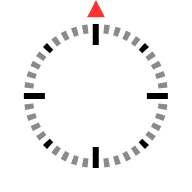Galileo FOC FM26 & FM32
Launch Success
Liftoff Time (GMT)
22:50:49
Tuesday September 17, 2024
Watch Replay
NASASpaceflight.com
Mission Details
Read Article
Launch Notes
Pair of satellites for Europe's MEO Galileo constellation. Originally planned to launch on Soyuz ST, but scrapped due to geopolitical factors. Then moved to Ariane 6, which was also scrapped due to delays. Europe contracted SpaceX to launch the two pairs aboard Falcon 9 for approximately €180 million ($192 million).
Galileo FOC FM26 & FM32
Galileo is a global navigation satellite system that went live in 2016, created by the European Union through the European Space Agency (ESA) and operated by the European GNSS Agency (GSA). The €10 billion project is named after the Italian astronomer Galileo Galilei. One of the aims of Galileo is to provide an independent high-precision positioning system so European nations do not have to rely on the US GPS, or the Russian GLONASS systems, which could be disabled or degraded by their operators at any time. The use of basic (lower-precision) Galileo services is free and open to everyone. The higher-precision capabilities are available for paying commercial users. Galileo is intended to provide horizontal and vertical position measurements within 1-metre precision, and better positioning services at higher latitudes than other positioning systems. Galileo is also to provide a new global search and rescue (SAR) function as part of the MEOSAR system. The first Galileo test satellite, the GIOVE-A, was launched on 28 December 2005, while the first satellite to be part of the operational system was launched on 21 October 2011. By July 2018, 26 of the planned 30 active satellites (including spares) were in orbit. Galileo started offering Early Operational Capability (EOC) on 15 December 2016, providing initial services with a weak signal and reached Full Operational Capability (FOC) in 2019. The full Galileo constellation will consist of 24 active satellites, which is expected by 2021. It is expected that the next generation of satellites will begin to become operational after 2025 to replace older equipment, which can then be used for backup capabilities.
Medium Earth Orbit
2 Payloads
1,603 kilograms
Rocket


Agency
SpaceXPrice
$69.75 million
Rocket
Diameter: 3.7m
Height: 70m
Payload to Orbit
LEO: 22,800 kg
GTO: 8,300 kg
Liftoff Thrust
7,607 Kilonewtons
Fairing
Diameter: 5.2m
Height: 13m
Stages
2
Launch Site

Launching
Northeast
Stats
Falcon 9
376th
Mission
90th
Mission of 2024
SpaceX
395th
Mission
93rd
Mission of 2024
2024
170th
Orbital launch attempt
